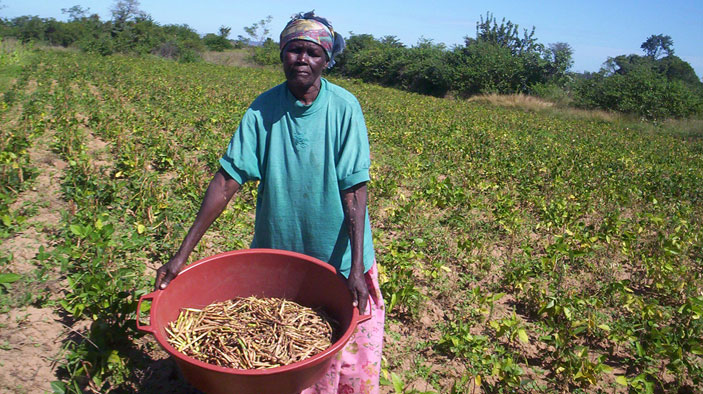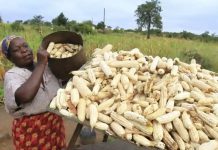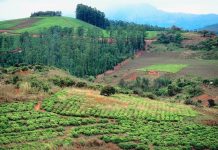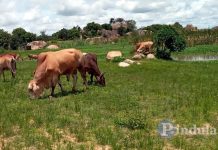Agriculture was an enabler to urbanisation. Increased productivity meant large segments of the population could be fed by a few committed to agricultural production.
Irrigation technologies evolved through ages from the Mesopotamian shaduf to the modern day drip and centre pivot systems.
Its foolhardy to believe that mere ownership and control of a resource without generating economic value from it enhances sovereignty when your self-pride is eroded by beggar-hood for survival.
Resource utilisation should benefit society and create social security and stability. Poverty amidst plenty is a mind-boggling concept.
Resource curse is a recurrent theme across sub-Saharan Africa and of late once promising countries in Latin America have joined the league of confused states.
There is no justice in owning and controlling a natural resource which you cannot utilise for the good of humanity. You had no role in the resource creation but a beneficiary of man-made processes.
Zimbabwe enjoys a host of natural and acquired comparative advantages in agricultural production ranging from good soil fertility, diverse climate to a sound agro technical skills base and citizenry generally passionate in farming.
We are not a lazy nation, our downside is confused politics and goofy bohemian economics incompatible with modern economic management systems.
We have a sound infrastructure base which historically was supported by an efficient and effective research and extension service which of late has become a ghost shadow of its previous glory.
Flagship research institutions like the Henderson, Grasslands, Matopos and Makoholi now look like a disused military training base for rebels in Gorongossa mountain forests.
A downgraded agro-industrial complex no longer serves its historic mandate due to incapacitation and inefficient use of obsolete equipment and reduced agro-commodity throughput to production processes.
Outsourcing of inputs is hindered by foreign currency availability and restrictions.
Generally, the supportive pillars for jump starting agricultural development are intact but the downside of the ecosystem is the absence creative, sustainable and coherent & consistent policy framework and the political will to implement the development agenda.
Land resource value generation after the land reform exercise can be realised through systematic and well-coordinated agriculture sector approach which takes into account unique realities faced by farmers in different sector models. Only voters can be equal but not farmers!
Productivity and ownership are not synonymous and its colour blind.
We need a dramatic paradigm shift from investing too much negative energy in power and control politics towards positive energy expending in nonpartisan development politics for the benefit of humanity.
In any case, sound development policies that get implemented are the surest basis for power retention through ingratiating the populace as opposed to adopting gestapo tactics.
Sustainable state-stewardship should be hinged on sound environmental policy framework for maximum cooperation from the citizenry.
Communal & A1
Historically this sector’s self-driven and self-dependent as a subsistence sector with little to self in good seasons.
A1 settlement model has assisted in decongesting communal areas ,a legacy of a raft of repressive and racial segregatory acts such as Native Reserve Areas act and the Land Husbandry and Apportionment Act of the colonial era.
Its most unfortunate that de-congestation of these areas has not be matched by any concerted efforts of rehabilitating them because a large segment of our population still subsists from that land!
Of late, an unsustainable dependency syndrome has been created through what appear to be moral and philanthropic initiatives by the state through such financing models like the annually chronicled Presidential Inputs Scheme which besides its noble intentions is highly vulnerable to political manipulation by purveyors of patronage and other vices.
Some non-farming politically connected youths access these inputs thereby depriving genuine farmers.
Numerous cases of top-notch political godfathers compiling lists of poor peasants as the supposed beneficiaries but only to divert the inputs to their farms and turn them into personal wealth.
Lots of expensive heavy agricultural equipment intended for use by farmers on a cooperative basis.
Irrigation pipes for smallholder irrigation have been looted in the same systematic manner and the chief culprits are well known but remain untouchable for the moment until peptic justice finally settles in at some stage.
No transparency, no accountability but impunity all the way.
Government extension services have taken a nosedive for a variety of reasons chief amongst which is inadequate remuneration for extension staff who either choose to spend more time attending their personal plots or only servicing those contracted tobacco farmers after which they receive a stipend from the contracting firms. The poor peasant is left to their devices which including’ peeping’ for knowledge from the contracted neighbour’s modus operandi.
Security of tenure is not only an incentive for big farmers but everybody. Its an enabler for investment even in the communal and A1 sector.
One way of enhancing security of tenure in the communal sector is by way of establishing locally-elected Community Property Associations in which the local traditional leadership plays a crucial role.
Village land committees, with assistance from technical extension experts should determine land allocation and use.
This setup will help in curbing errant behaviour of unscrupulous village and kraal heads who corruptly settle people in grazing areas and wetlands.
All communal land must be surveyed and mapped and each Community Property Association given official title deeds by local deeds office.
All committees must maintain land registries which are presented to the Land Registry and in turn they’re issued with a clearly demarcated survey map.
Within the Community Property Association, elected committees should be empowered to issue out official Certificates of Occupancy to individual households as an acceptable document for security of tenure for communal landholders.
It now makes it more sensible to invest in communal land agriculture without fear of loss of value over the uncertain future. You can never be sure in Africa for hyenas and crocs abound!
Land is a finite resource which sustains an exponentially growing population. Sustaining increased productivity is not an option but a sacred must.
Once non-farming communities are assured of a dependable and affordable source of food, they voluntarily cede their right to produce for themselves to those who have
taken food production as a fulltime career thereby removing the unnecessary and sometimes violent competition for agricultural land as we occasionally witness in Nigeria and Ethiopia
taken food production as a fulltime career thereby removing the unnecessary and sometimes violent competition for agricultural land as we occasionally witness in Nigeria and Ethiopia






